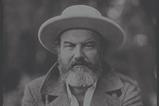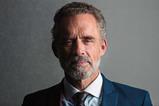The Evangelical Alliance’s decision to remove Steve Chalke’s organisation Oasis from membership raises the question of what defines an evangelical today. Justin Brierley reflects on why homosexuality has become the latest tipping point.

‘So where do you stand on homosexuality?’ asked the church leader I had met only five minutes ago.
We were attending a media event, and had reached the wine-and-canapés-hobnobbing part that inevitably follows. It’s the kind of question which, in any other context, would seem vastly inappropriate from someone you had just been introduced to. ‘Terrible weather we’ve been having...so what do you think about gay sex?’
There is an unwritten (and slightly depressing) rule in some evangelical circles that the quickest way to ascertain if a person is ‘sound’ is to find out what they think about sexuality. We live in a world of ever-increasing categorisation, and homosexuality seems to have become the de-facto crunch issue that can potentially mark you in or out of the evangelical fold.
HISTORY REPEATING ITSELF
The last time UK evangelicals experienced a crisis over a divisive and controversial subject was ten years ago. The issue then was penal substitutionary atonement.
Steve Chalke co-wrote a book entitled The Lost Message of Jesus (Zondervan) which briefly took issue with a doctrine of the cross in which God pours out his wrath upon Jesus, punishing him instead of us. The ensuing debate involved articles and counter-articles, symposiums, theology papers and press releases. Particularly at stake was the issue of whether Chalke should remain part of the Evangelical Alliance for rejecting the doctrine.
Back then, Chalke stayed. This time his organisation hasn’t.
Of course, the presenting issues are very different this time around. Firstly, the atonement debate was an internal and, frankly, technical debate among evangelicals. The mainstream press were indifferent. However, with the recent legalisation of same-sex marriage, major rifts in Anglicanism and a strongly pro-gay sentiment among most of the media, homosexuality is an altogether different matter.
This time the mainstream press are on high alert for any major figure willing to diverge from the traditional view. More than a year on from Chalke’s article in this magazine, in which he spelled out his support for committed same-sex relationships, the Evangelical Alliance has decided to discontinue the membership of his organisation. The fact that Oasis, the major church development charity that Chalke founded in 1985, has been removed will inevitably make waves in the national press.
DRAWING A LINE IN THE SAND
Chalke remains one of the most well-known Christians in the UK. What has brought him such prominence is his extraordinary record in working for social justice, anti-slavery, education, welfare, youth work and much more besides. He is a tireless campaigner, a record-breaking fundraiser and an inspirational speaker, receiving recognition both in the UK (awarded an MBE in 2004) and internationally (appointed as a special adviser to the United Nations in 2008).
Yet this is the man the EA has dissociated itself from. Rightly or wrongly, the news will fuel the public perception of evangelical Christians as narrow-minded, homophobic killjoys.
Of course the EA has found itself caught between a rock and a hard place (and its leader, Steve Clifford, has my sympathy). They would be the first to recognise and applaud Chalke’s record on social action, and will be fully aware of the potential for adverse publicity that their decision will bring upon the evangelical community. Yet the EA also has a duty to stand upon its founding charter – distinguishing what does and does not count as evangelical – and sometimes that requires making hard decisions. I was probably not the only person to have heard rumblings among conservative evangelicals that the situation represented a line-in-the-sand moment for the credibility of the Alliance.
The EA has found itself caught between a rock and a hard place
Not only that, but a precedent had already been set. In 2002, Courage UK, a charity supporting same-sex attracted Christians, was asked to resign its EA membership after it changed its policy to affirming committed same-sex relationships. Consistency alone would have required that Oasis be asked to do the same.
WHAT’S IN A NAME?
Despite the evolution of his theological views, Chalke says he remains an evangelical, which he often defines as a ‘good news bringer’. The problem with such a broad definition is that Christians from almost anywhere on the theological spectrum could sign up to it. The EA’s basis of faith is, inevitably, a little more exacting.
The reality is that Chalke, and many others who are following in his footsteps, are in a battle for the heart of modern evangelicalism.
Chalke’s announcement at the start of 2013 seemed to open the floodgates for others to declare on which side of the line they stood. ‘I’m with Steve Chalke’ was tweeted in solidarity by numerous individuals.
Prominent influencers in the USA such as Rob Bell and blogger Rachel Held Evans have gone public with their own affirmation of committed same-sex partnerships. Then there was the recent fiasco of World Vision USA allowing and then un-allowing those in gay marriages to be employees.
In the UK, former worship leader Vicky Beeching has begun writing a series of blogs explaining why she now embraces a theology that includes gay marriage. The decision to explain her theology came after messages of congratulation that she tweeted to the first gay couples to wed in March were met with an avalanche of criticism from much of her fan base. To them, the popular singer-songwriter had betrayed her evangelical roots.
In her blog Beeching says that while many of her former supporters accuse her of selling out to a worldly agenda, the decision has actually meant a significant personal financial cost. Her main source of income – songwriting royalties – has tumbled since North American megachurches have begun to boycott the use of her songs. It was a cost that World Vision USA weren’t able to stomach when, after haemorrhaging support from their evangelical donor base, they reversed their policy on sexuality within a couple of days.
WHY THIS ISSUE?
This is all further evidence of the way that views on homosexuality have become the defining litmus test for evangelical orthodoxy. At one level, it’s tempting to ask ‘Why?’
There are many doctrinal differences that most evangelicals seem to be able to live with for the sake of unity, such as women’s leadership, penal atonement and the role of the Spirit. If the answer comes that these are secondary issues, then evangelicals need to think carefully about why sexuality has come to be regarded a primary one.
Meanwhile those like Chalke and Beeching, who have stepped across the line, insist that they don’t want to stop being known as evangelicals. They believe in the centrality of Christ, and say they are just as committed to taking scripture seriously as they ever were, but have reached different interpretive conclusions in this particular area. ‘Is there still room for us?’ they ask.
Chalke and Beeching insist that they don’t want to stop being known as evangelical
SPEAK THE TRUTH IN LOVE
At such times we may need to speak the truth in love (Ephesians 4:15), but can we turn the love up as loud as possible, please? We should begin by making sure we don’t metaphorically burn each other at the stake or label each other as heretics when we honestly disagree. Let’s at least agree to leave that behaviour behind in the middle ages.
Sadly there is no way through this dilemma that will not result in feelings of hurt, betrayal and disappointment on one side or another. What seems certain is that the EA’s decision is one that more and more evangelicals will be faced with as they are required to ask themselves what they really stand for.






































No comments yet